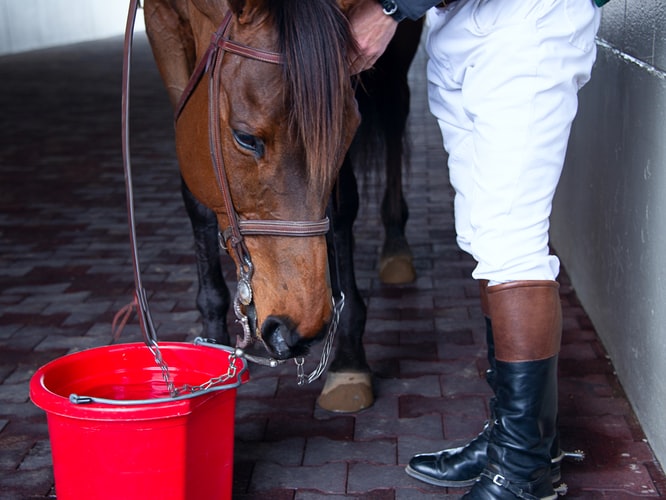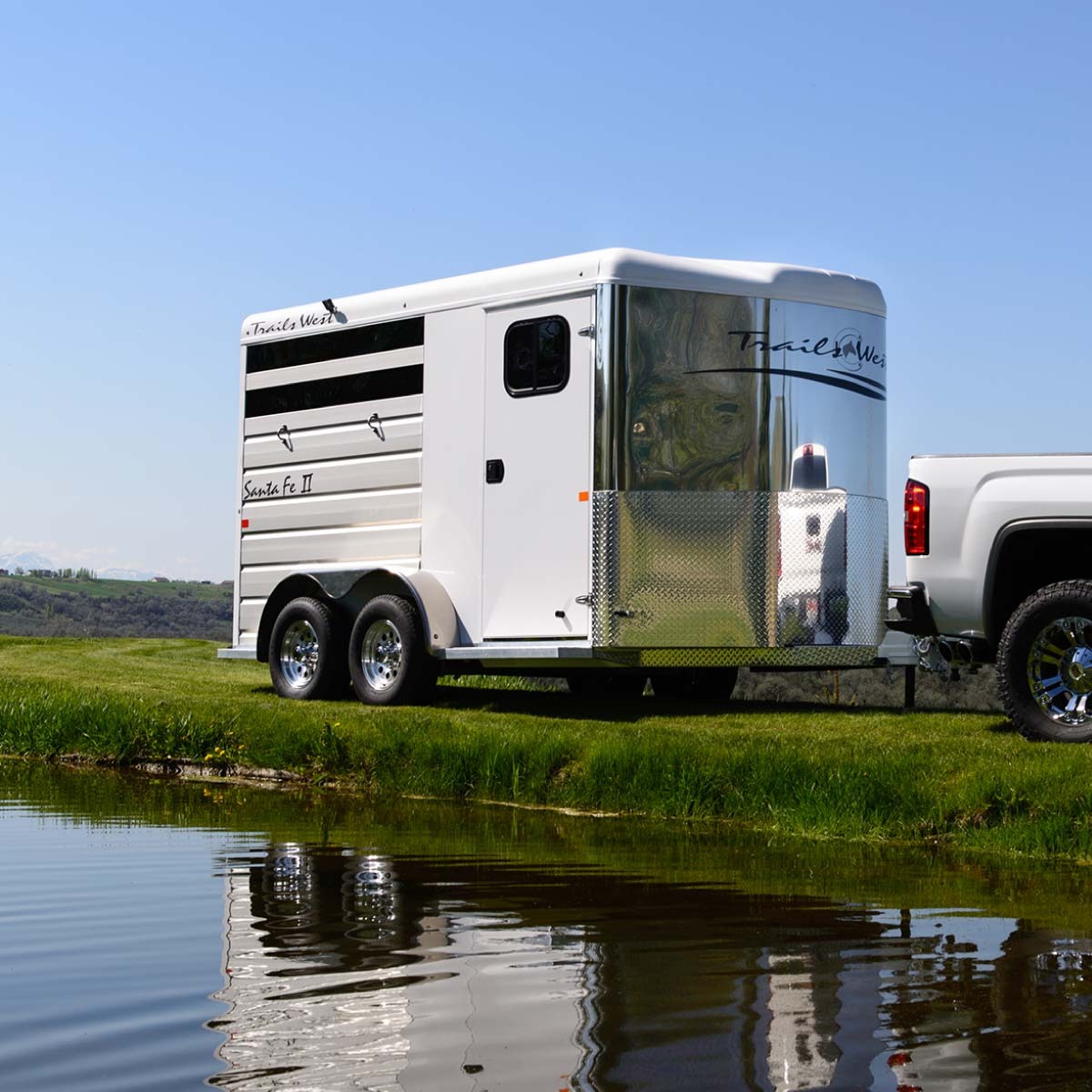Prevent Dehydration at Competition — The Healthy Hauling Series Part 1

That ancient proverb “You can lead a horse to water, but you can’t make it drink” has probably been around since the twelfth century. We don’t know who wrote it, but we think he or she was definitely a competitive rider!
The team here at Trails West Trailers are equestrians, too. We know exactly how frustrating it can be to spend hundreds of hours—and untold dollars—preparing yourself and your horse for specific competitions, only to worry through the weekend over a horse who refuses to drink.
Welcome to the first in our ongoing series dedicated to healthy hauling. The team at Trails West wants to do more than sell you a high-quality horse trailer. We want to make you a customer for life! And that means taking care of you and your equine friends. So throughout this series, we’ll cover everything that matters to you and your horse when it comes to competing healthily. No matter which discipline you ride, we’ll cover everything you need to know.
The Dangers of Dehydration in Horses
You probably already know how dangerous dehydration in horses, ponies, and mules is. We think Kentucky Equine Research says it best:
- When horses are slightly dehydrated, their performance suffers first.
- In the performance categories, sloppy reactions lead to barrels knocked over at the rodeo, clipped rails in the hunters, and precious seconds lost in the box. For three-day-eventers, a missed fence in the cross-country can lead to crippling injury.
- Their appearance suffers too, causing the dreaded “sucked up” look among your most cherished halter or pleasure stock.
- In the worst cases, severe dehydration can lead to colic, impaction colic, and even kidney failure.
- These are terrifying thoughts, as you’ll be on the hook for thousands of dollars in vet bills for a horse that might not be savable.
So let’s talk about some ways to combat dehydration in horses—both modern, and old-school cowboy styles.
Modern Defenses Against Dehydration in Horses
Before we get any farther, the best defense against dehydration is constant access to clean, cool water in the stall and while tied to the trailer.
- If you’re hauling out of town, bring water from home.
- Many horses get picky about the smell of water.
- If your boarding stable uses municipal (city) water, your horse might have developed a taste for water treated with mild chlorine and fluoride.
- Conversely, if your well-water reeks of sulfur, hellfire, and brimstone, your horse will recognize it as thirst-quenching and familiar.
Next, consider adding a few tubes of modern electrolyte paste to your in-trailer first aid kit. Read the labels and administer them correctly for your horse’s weight. Some brands are administered during the day of competition. Others work best before or after a show day. No matter which formula you use, they’re all based on basic table salt. So keep pushing that familiar water!
There’s more than one way to hydrate a horse, though. And some horses — particularly green horses or those nearing sourness from constant, intense competition — will simply refuse to drink. For those, we turn to the old cowboy method.
An Old-school Method to Make Your Horse Drink
The Coca-Cola Method
In a dire emergency, fill a water bucket about 3/4ths with fresh water. Crack open a can of Coke (step away from your horse if you think this is going to spook him). Then come back and pour about half the can into the bucket. Make sure your horse is paying attention, and pour slowly. The fizzing sound and sugary scent will be interesting to him, so you can draw this out for a while. Encourage him to take interest with a light, playful tone of voice. Then tip the can upside-down and submerge it into the water, creating an air bubble in the can. It should float there like a bobber.
Most horses will use this slightly-spooky experience to make a few dramatic snorts. But eventually, their curiosity will take over, and they’ll start to nose the floating can. Once they get their nose wet with sugar-scented water, they’ll usually drink the entire bucket! Offer another half-bucket of plain water every twenty minutes or so, allowing some time for absorption in the gut.
You might know other excellent methods to help a fussy drinker at the show. Feel free to share them with our readers below! And as always, if you have questions about horse trailers, trailers with living quarters, or livestock trailers, contact us today!






